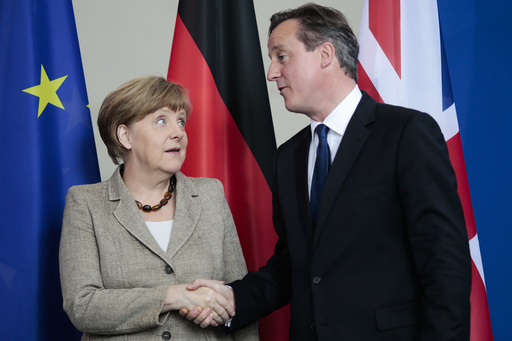BERLIN — In her newly released memoir, titled “Freedom,” former German Chancellor Angela Merkel reflects on her experiences with Vladimir Putin, her interactions with former U.S. presidents Barack Obama and Donald Trump, and her role in the Brexit saga. At 70 years old, Merkel chronicles her 16-year tenure as the head of Germany while addressing significant challenges that arose during her time, including the global financial crisis, the European debt crisis, the surge of refugees between 2015 and 2016, and the COVID-19 pandemic. Her narrative combines her early years in communist East Germany with her political journey, all delivered with a touch of dry humor.
Merkel highlights her relationships with multiple international leaders, having worked alongside four U.S. presidents, four French presidents, and five British prime ministers. However, her encounters with Russian President Vladimir Putin have provoked the most analysis since she completed her term in late 2021.
Specifically, Merkel recounts an instance during the 2007 Group of Eight summit she hosted, where she found herself waiting for Putin, emphasizing her disdain for tardiness. Additionally, during a trip to Sochi that same year, she describes an awkward moment when Putin brought his Labrador dog into their photo opportunity, despite her well-known fear of dogs. Merkel chose not to mention her discomfort, adhering to her mantra of “never explain, never complain.” She also reflects on a previous conversation where Putin suggested that impoverished citizens in Siberia could be easily manipulated, echoing sentiments about U.S. interference during Ukraine’s “Orange Revolution” in 2004. In this context, Putin declared he would never tolerate such events in Russia.
In her memoir, Merkel articulates her frustration with Putin’s “self-righteousness” displayed during a speech he made in Munich in 2007. She perceived his remarks as a departure from their prior ambitions to foster closer relations with the U.S., revealing his guarded mentality and a readiness to engage in power games, even involving his pet. Merkel argues that while his behavior could be dismissed as immature, it did not negate Russia’s presence on the global stage.
Furthermore, she defends her controversial 2015 peace agreement for eastern Ukraine, as well as her government’s strategy of purchasing considerable amounts of natural gas from Russia. Merkel insists that maintaining diplomatic and trade relations with Moscow was the correct approach until her departure from office.
On her initial encounter with Obama, Merkel was optimistic about their potential collaboration. Following their first meeting in 2008, she felt they could work together effectively. During Obama’s last presidential visit in November 2016, he encouraged her to pursue a fourth term, suggesting that Europe could still benefit from her presence. Unlike her constructive relationship with Obama, her interactions with Trump were decidedly more strained, as he had criticized both her and Germany during his 2016 campaign. Merkel describes the need to cultivate a workable relationship with Trump while refraining from responding to his provocations. One notable event in March 2017 encapsulated this tension when, during an awkward photo op, Merkel suggested a handshake that was met with silence from Trump, who remained unresponsive. She ultimately acknowledges that she misread the situation, as Trump seemed intent on spurring controversy through his behavior.
Reflecting on Brexit, Merkel expresses her efforts to assist then-Prime Minister David Cameron in navigating tensions with Euroskeptics but recognizes the limitations of her influence. She views the process leading to Brexit as a cautionary tale resulting from strategic errors. After the British public voted to leave the EU in 2016 — an outcome Merkel describes as “humiliation” for other member nations — she grapples with whether she could have made additional concessions to the UK to avert the decision. Ultimately, she concludes that given the domestic political climate in Britain at that time, there was little she could have done to change the course of events.
Merkel was notable for being the first chancellor to leave office on her own terms, announcing in 2018 that she would not pursue a fifth term. She reflects on her decision to step down and considers it a timely departure. She recalls several incidents in 2019 where her body shook in public, which she later interpreted as her body releasing accumulated tension. Following thorough medical examinations that revealed no serious issues, she cites feedback from her osteopath regarding the physical manifestation of her long-standing stress.
The memoir “Freedom” spans over 700 pages, published originally in German by Kiepenheuer & Witsch, with an English version released concurrently by St. Martin’s Press.




